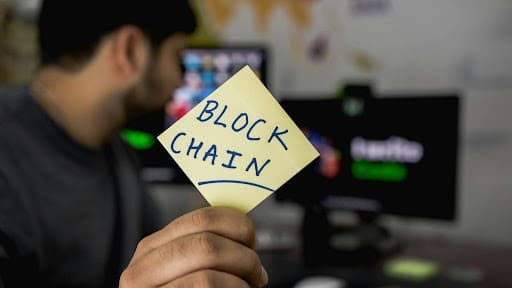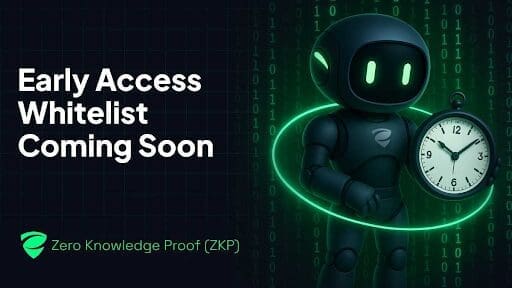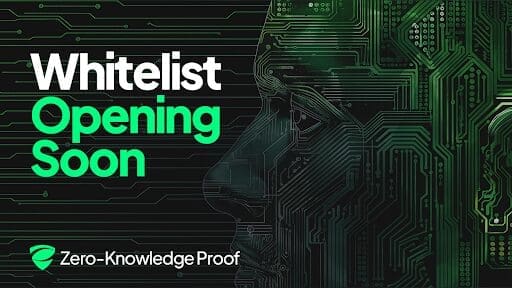Every transaction you make on a public blockchain leaves a permanent trace. Anyone can view your balance, your trades, and your financial movements in plain sight. This transparency, once celebrated, has turned into exposure. Real users, from individuals to institutions, need privacy that isn’t performative but structural.
The Zero Knowledge Proof (ZKP) AI crypto has been designed precisely for that reason, to make confidentiality the foundation of trustless systems. It’s not a privacy “mode” you switch on; it’s embedded in every layer of its architecture. As its whitelist prepares to open for signups soon, early access offers a rare chance to enter a blockchain where privacy is guaranteed by design.
The Problem with Transparent Chains
Traditional blockchains, while secure, expose too much. Wallet addresses are pseudonyms, but they reveal complete histories: every transaction, token, and transfer. This is the digital equivalent of publishing your bank statements online. For regular users, this means vulnerability; for businesses, it means lost competitiveness.
- Competitors can track capital flows.
- Analysts can map out trading strategies.
- Hackers can target high-value addresses.
The issue isn’t about having “something to hide.” It’s about protecting what’s rightfully private. A blockchain meant for global adoption cannot treat privacy as optional. It must make confidentiality inseparable from function. That’s the challenge Zero Knowledge Proof (ZKP) addresses directly, not through add-ons or layers, but through cryptographic principles that make exposure impossible by default. Privacy becomes not a choice, but a standard built into every transaction.
Privacy as Architecture, Not an Add-On
Most projects bolt on privacy features after building their core systems, but that’s like locking your door after leaving it open. The Zero Knowledge Proof blockchain was designed differently. Privacy is the structural framework of its blockchain, not an accessory.
It uses advanced proof systems, including zk-SNARKs and zk-STARKs, which allow actions to be verified without revealing data. This creates an environment where transactions are valid, but their details remain invisible.
- Confidential transactions: Amounts and participants remain encrypted.
- Selective disclosure: Users can share details only when required for compliance.
- Shielded smart contracts: DApps can execute logic privately and securely.
Instead of hiding behind add-ons, ZKP ensures that privacy is as fundamental as consensus. It redefines what it means to “trust the chain”, not by transparency of data, but by the mathematical integrity of invisible proofs.

How Zero Knowledge Proof (ZKP) Scales Without Compromise
The challenge with most privacy protocols is performance. They either protect data or process it quickly, and rarely both. Zero Knowledge Proof (ZKP) eliminates this trade-off with a multi-layered approach that integrates scalability into its privacy structure.
Its architecture employs:
- The zk-Rollups: Combine thousands of transactions into one proof, reducing on-chain load.
- Recursive proofs: Allow proofs to validate other proofs, cutting computation costs.
- Parallel verification: Executes multiple validations at once, improving throughput.
These innovations push throughput into tens of thousands of transactions per second while keeping fees minimal. The result: privacy that scales. Institutions can operate securely without latency.
Developers can build high-speed DApps without compromising confidentiality. And users experience the performance of public chains with the discretion of private ones. Zero Knowledge Proof (ZKP) makes both possible and sustainable.
A Privacy-First Ecosystem Built for the Real World
What makes Zero Knowledge Proof (ZKP) unique is that it’s not just a chain. It’s an ecosystem for real-world utility. Its features extend far beyond anonymous transactions.
- DeFi protocols: Private lending, swaps, and yield mechanisms.
- Identity tools: Zero-knowledge KYC lets users prove compliance without revealing data.
- NFTs and gaming: Private ownership and secure in-game economies.
- Cross-chain bridges: Maintain privacy while connecting to Ethereum, Solana, and more.
 This ecosystem empowers users, businesses, and developers to operate freely within a secure digital environment. Governance through a DAO ensures the network evolves collectively, supported by quadratic voting and transparent treasury allocations. As industries move toward data protection and regulatory balance, Zero Knowledge Proof (ZKP) stands ready, not just as a blockchain, but as infrastructure for a new era of private digital interaction.
This ecosystem empowers users, businesses, and developers to operate freely within a secure digital environment. Governance through a DAO ensures the network evolves collectively, supported by quadratic voting and transparent treasury allocations. As industries move toward data protection and regulatory balance, Zero Knowledge Proof (ZKP) stands ready, not just as a blockchain, but as infrastructure for a new era of private digital interaction.
Final Take: The Future Belongs to the Invisible
Privacy isn’t the enemy of transparency. It’s the evolution of trust. Zero Knowledge Proof (ZKP) proves that you can verify without exposing, transact without revealing, and build without surveillance. Its foundation of shielded smart contracts, confidential transactions, and verifiable proofs sets a new standard for digital sovereignty.
This is not a project chasing trends; it’s one rebuilding what blockchain was meant to be: secure, decentralized, and free from intrusion. As its whitelist prepares to open soon for signups, it’s not about early access to a coin. It’s about entry into a movement where privacy is no longer optional, but inevitable.

